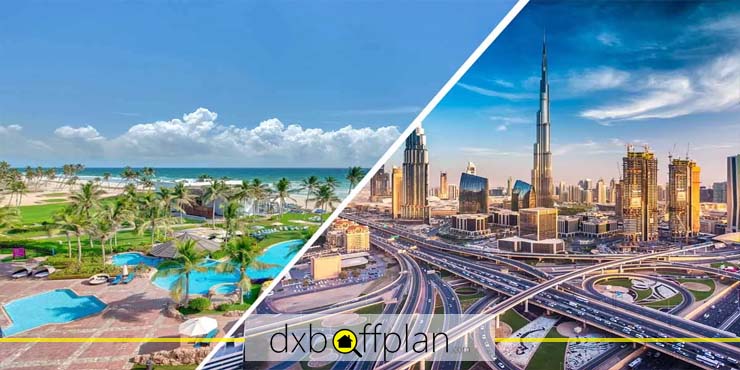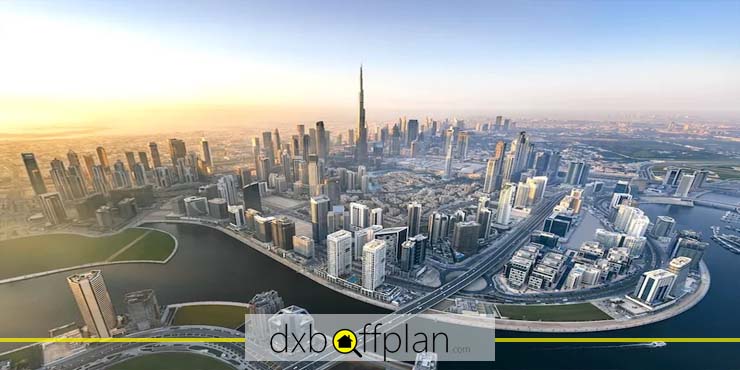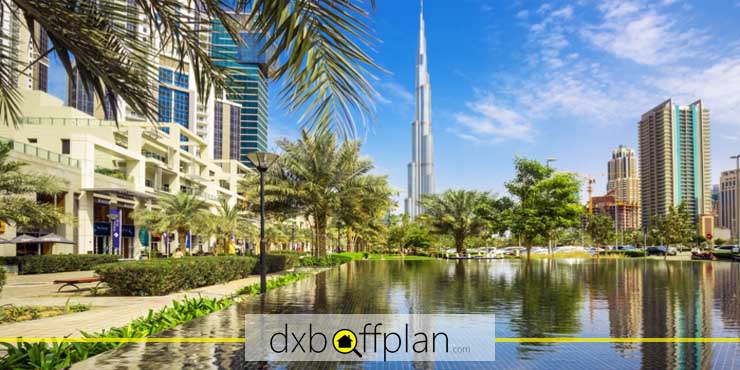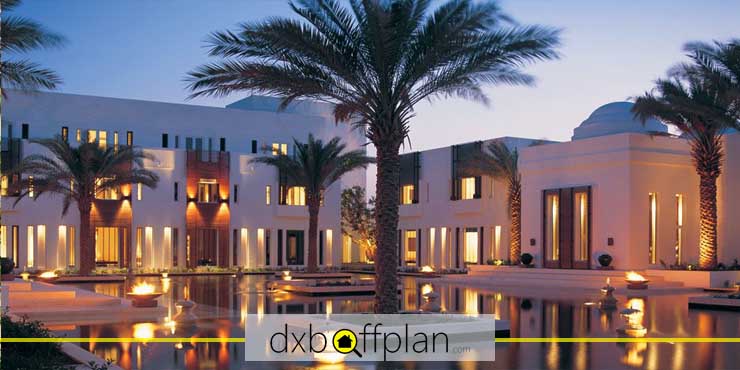Dubai vs Oman Real Estate: Where Should You Invest in 2026?
The Gulf region has, in recent years, attracted more foreign investors. Its wealth of opportunities, as well as its rapidly growing infrastructure, coupled with its investor-supportive taxation policies, has made the region a real estate investment destination. The United Arab Emirates Dubai being the jewel in its crown is one of the best examples we can provide for this argument. Dubai and Oman both have their respective strengths, which make them the most suitable to invest in real estate.
But the million-dollar question is: Should I invest in Dubai real estate or Oman? Both countries offer great geographical location, security, thriving housing markets, as well as residency benefits, but are different with regards to ownership terms, price, returns, and lifestyle. As we delve in this Dxboffplan article, we will explore Dubai vs Oman real estate investment to help you make the right decision.
Overview of Dubai vs Oman for Real Estate Investors
Dubai and Oman are the most sought-after areas to invest in real estate in the Gulf. Dubai is an international financial hub with world-class infrastructure and clearly defined laws of ownership, making it an international hotspot for foreign investment. Oman, however, provides a more relaxed lifestyle, reduced costs, and monetary stability—all of which are perfect for investors who need assured returns in times of no conflict. Let us compare Dubai vs Oman real estate in more details below:
Dubai: Middle Eastern Investment Capital of the New Era
One of the seven emirates of the United Arab Emirates, the city of Dubai has evolved from being a small port city to becoming an international city with skyscrapers, luxurious malls, and advanced housing estates. The main positive points of the Dubai vs Oman real estate market are:
- Full ownership of the properties (Freeholds) in particular regions by foreigners
- Vibrant rental market with healthy ROI
- High-quality infrastructure (metro, roads, smart zones)
- Seductive investor schemes in terms of government support and Golden Visa
Oman: The Affordable and Peaceful Alternative
Oman, with its capital city being Muscat, is a lower-cost but stable country in the southeastern part of the Arabian Peninsula. Oman is famous for having retained its identity, and it has a serene and family-like setting for businesspeople. Seeking to attract foreign buyers, Oman launched Integrated Tourism Complexes (ITCs) – specific sectors where foreign nationals can acquire property. Critical factors for real estate investment in Oman include:
- Lower land and real estate prices in comparison to Dubai
- High political and economic stability
- Residence permit through real estate investments in targeted projects
- Reducing taxes and other expenditures
Laws of Property in Dubai and Oman
Investment is influenced heavily by ownership laws. Both of these countries are open to foreign buyers of property, but the conditions and the incentives differ. Here’s a closer look at Dubai vs Oman real estate in terms of laws and regulations:
Foreign Freehold Ownership in Dubai
Dubai has been permitting foreigners to purchase freeholds in certain areas since 2002. These areas are:
- Dubai Marina
- Downtown Dubai
- Palm Jumeirah
- Business Bay
- Jumeirah Village Circle
Foreigners can own, rent, sell their properties with no time limitations.
Omani Ownership: Restricted to Certain Projects
Foreign ownership in Oman is only permissible in ITC projects including:
- Muscat Hills
- The Wave (Al Mouj Muscat)
- Jebel S
It is typically leasehold (up to 99 years), but there are also developments which offer outright ownership. They typically offer accommodation to the buyer and his/her family.
Pros of Buying Property in Dubai
When it comes to Dubai vs Oman real estate, Dubai is still a preferred option for foreign investment. Its economy is stable, there are clear ownership procedures, and there is high demand for rental. All these make Dubai a major market in the Middle East. Like with every market, there are disadvantages and advantages to investing in Dubai. The following are the major pros:
Full Ownership for Foreigners
It is one of the few cities in the region that offers such full foreign ownership of properties (Freehold) in specific areas. Foreigners can buy, rent out, sell, and pass on their properties to their successors forever.
No Property Or Income Tax
There is no tax on personal income as also on rental income in Dubai, resulting in higher net returns versus most other countries.
High Demand and Strong Rental Market
The expatriate-heavy population of Dubai ensures there is always demand for rented properties. Investors can lease their buildings with ease and enjoy good ROI.
High-end Infrastructure and Luxury Developments
From the Burj Khalifa to world-class hospitals, roads, and transportation, Dubai boasts smart-city infrastructure that provides long-term value to the properties.
Golden Visa through Real Estate Purchase
At least AED 2 million worth of property can provide the buyer and his/her family with a renewable 10-year UAE Golden Visa.
Disadvantages of Buying Property in Dubai
While there are many pros, there are also cons such as prohibitively expensive transaction fees as well as market volatility due to the sheer number of new firms.
Forbidden Zones of Foreign Investment
Foreigners are allowed to buy only in particular zones, typically the luxury ones with higher prices, which could limit the choices for middle-budget consumers.
Registration Fee and Other Fees
While there is no tax on income, 4% of the value of the property is paid as registration cost, as well as the agent and notary fees.
Market Fluctuations and Oversupply
Dubai’s market also faces the risk of price volatility, most notably during periods of project overcapacity. This will impact short-term investment returns.
No Permanent Residency
While there is the option of more permanent visas like the Golden Visa, the UAE is also not offering permanent residency, which may be a problem for some buyers.
The Advantages of Buying Property in Oman
Foreigners are now turning their eyes to Oman as a real estate market. It boasts a stable economy, a lower cost of living, and there are foreign ownership zones, making it an appealing choice. Nevertheless, like in any market, there are advantages and disadvantages. Here we will discuss the pros:
Less Expensive than Dubai
The property prices in Oman are considerably lower in comparison to cities like Dubai, thus attracting middle-budget as well as long-term investors.
Long-term Political and Economic Stability
The stability within and outside of Oman creates a secure investment climate, mitigating the odds of abrupt market fluctuations.
Reduce Unnecessary Expenditures
Compared to Dubai, Oman has lower registration tax (~3%) and lower maintenance, service, and living costs, which make market entry simpler.
Foreign Buyers’ Special Projects (ITC)
To entice foreign investment, Oman opened the Integrated Tourism Complexes (ITC), which enable foreign nationals to buy property. These compounds have apartments, villas, schools, shops, and recreational facilities.
Renewable Residency Linked to Property
Foreigners investing in real estate in ITC zones can acquire renewable residence permits for themselves and their family members, allowing for enduring residence.
Disadvantages of Buying Property in Oman
Oman’s market is confined to the selected ITC projects and more likely to offer leaseholds rather than full ownership. It is not as dynamic as Dubai’s with lower returns in the short term. Here is a more in depth look:
Location Restrictions
Foreigners can only purchase a home in government-approved ITC areas such as Muscat Hills or Al Mouj Muscat, limiting the possible locations.
Mostly Leasehold Ownership
Foreigners also acquire their ownership in the long-term lease form (often 99 years), rather than full freehold that can appear to lack security for some buyers.
A Less Vibrant Market than Dubai
Oman is an emerging real estate market. It is characterized by reduced active projects and demands, which affect rental yield and profitability in the short term.
Slow in Processing Legal Documentation and Registration
Visa processing in Oman can take longer due to traditional administration systems, which can be a source of inconvenience to some investors.
Dubai vs Muscat: Property Prices
In Dubai, rentals and purchases of properties are far more expensive than in Muscat. For budget-conscious investor clients looking to achieve reasonable returns, value for money can be obtained in Muscat. Dubai, with its thriving market and good-quality facilities, however, demands a higher cost of investment with better prospects. Here is a closer look of what you must expect in terms of prices:
| Indicator | Dubai (AED) | Muscat (OMR) | Percentage Difference |
| Price per square meter in city center | 2,228.78 | 233.47 | Dubai is 77.6% more expensive |
| Price per square meter outside city center | 1,228.81 | 128.72 | Dubai is 67.7% more expensive |
| Monthly rent for 1-bedroom apartment in city center | 8,560.65 | 896.74 | Dubai is 73.7% more expensive |
| Monthly rent for 1-bedroom apartment outside city center | 5,521.21 | 578.36 | Dubai is 72.8% more expensive |
| Monthly rent for 3-bedroom apartment in city center | 16,610.43 | 1,739.97 | Dubai is 72.6% more expensive |
| Monthly rent for 3-bedroom apartment outside city center | 10,745.56 | 1,125.62 | Dubai is 75.2% more expensive |
Dubai and Oman Differences in the Property Buying and Selling Process
Selling and buying property includes legal processes, governmental approvals, tax payment, and title registration. All of these processes vary from country to country. Below is a comparison of the real estate transaction processes in Dubai and Oman:
Property Buying Process in Dubai
Here is the real estate transaction processes in Dubai:
- Choose a property in a region that is open to foreign ownership.
- Form a tentative sales agreement (Form F or MOU) with the vendor.
- Pay a down payment (normally 10% of the cost).
- Obtain a No Objection Certificate (NOC) from the developer of the project.
- Register the transaction with the Dubai Land Department and pay 4% government tax.
- Acquire full ownership and procure the official Title Deed.
Process of Buying Property in Oman
Here is the property transaction processes in Oman:
- Select one of the ITC (Integrated Tourism Complex) projects offered to international buyers.
- Make a sales agreement with the current owner or the developer.
- Supply identification documents and seek the Ministry of Housing’s approval.
- Pay the sum agreed and 3% registration tax.
- Register the title with the official registry in Oman to own the apartment (freehold or leasehold, depending on the requirements of the project).
If you prefer online procedures, speed, and transparency, Dubai is the better option. Oman offers a lower cost and more conventional route, which is more suitable to buyers who prefer more conservative legal systems and lower entry requirements.
Dubai vs Oman Real Estate: Residency Prospect
Residency opportunities are not the same in these two markets. Dubai offers you UAE residency by investment which is for 10-years and extendable for yourself and family, sponsor-free. That is if you purchase a home worth a minimum of AED 2 million. Oman, on the other hand, provides for temporary 1- to 2-year residence permits with possible renewability with ITC real estate investments. Permanent residency is not impossible but you have to meet the criteria.
Dubai vs Oman Real Estate: Investment Return and Profitability
Dubai’s market rewards you with more returns due to rental demand, rapid growth, and new construction. Rental yield in Dubai’s upscale areas like Downtown Dubai or Dubai Marina is 5% to 8% annually, with the value of the properties rising. But Oman’s market is stable, not speculative. Short-term profit may still remain restrained, but for long-term players there is lower cost of acquisition and stable returns—something which would appeal to those looking for a conservative and stable investment approach.
If you seek a high-yielding, rapid market with full ownership rights and locational flexibility, in the battle of Dubai vs Oman real estate, go to Dubai. But if you prefer a slower market, lower expenditures, and a lower-risk investment, Oman might suit you best.
Final Words
The choice when it comes to Dubai vs Oman real estate depends upon a number of factors such as investment goals, budget, risk appetite, and lifestyle. Dubai is the preferred destination for a global city with good rental yield, good-quality infrastructure, and permanent residency—despite the increased initial investment. Oman’s stability, lower expenditure, and laid-back lifestyle, however, make the country appealing to family-oriented, long-term investors.
Both of these countries offer good real estate opportunities—assuming that whichever one you select suits your specific needs.
If you need more recommendations or advice to select the right investment, we at dxboffplan are here to serve you. We offer the latest property prices in Dubai and Oman, new market trends, and free consultation by seasoned professionals, so you can make better-informed decisions.
frequently asked questions
Foreigners can purchase only in specific Freehold zones in Dubai. In Oman, only specific ITC projects approved for foreign ownership can be bought.
Foreigners can own property in Dubai on the freehold basis in specific regions with full ownership rights.
There are no annual property taxes to pay in Dubai or Oman. Buyers do have to pay registration fees, however—4% in Dubai and 3% in Oman.











